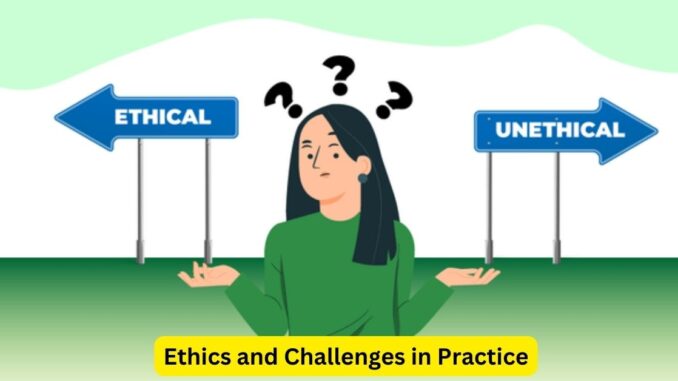
In the modern legal landscape, lawyers navigate a complex web of ethical considerations and practical challenges. With the advent of digital technology, globalization, and evolving societal expectations, the legal profession faces new hurdles that require a steadfast commitment to ethical principles. This article explores the ethical dilemmas and practical challenges lawyers encounter, and the strategies they employ to uphold integrity and justice in their practice.
The Ethical Framework: Guiding Principles
The legal profession is underpinned by a robust ethical framework designed to ensure justice and maintain public trust. Key principles include client confidentiality, competence, integrity, and the avoidance of conflicts of interest. These principles are enshrined in codes of conduct, such as the American Bar Association’s Model Rules of Professional Conduct, which provide a comprehensive guide for legal practice.
Adhering to these ethical standards is paramount. Lawyers must navigate the delicate balance between zealous advocacy for their clients and their duty to the court and society at large. This balance often presents ethical dilemmas, where the right course of action may not always be clear-cut.
Digital Age Dilemmas: Confidentiality and Privacy
In the digital age, maintaining client confidentiality has become increasingly complex. Lawyers must safeguard sensitive information against cyber threats, necessitating robust cybersecurity measures. This includes secure communication channels, encrypted data storage, and regular security audits. The rise of cloud computing and remote work further complicates these efforts, requiring constant vigilance and adaptation.
Moreover, the use of social media and digital communication can blur the lines of professional boundaries. Lawyers must exercise caution in their online interactions, ensuring that they do not inadvertently disclose confidential information or engage in conduct that could be perceived as unprofessional.
Globalization and Multijurisdictional Practice
Globalization has expanded the scope of legal practice, with lawyers frequently handling cases that span multiple jurisdictions. This presents unique ethical challenges, as lawyers must navigate differing legal standards and regulations. Understanding and reconciling these differences while maintaining ethical integrity is crucial.
Additionally, lawyers engaged in international practice must be mindful of cultural sensitivities and ethical norms that may differ from their own. This requires a nuanced understanding of global legal systems and a commitment to upholding ethical standards consistently across borders.
Access to Justice: Bridging the Gap
Despite advancements in technology and legal services, access to justice remains a significant challenge. Many individuals and small businesses struggle to afford legal representation, leading to a justice gap. Lawyers are increasingly called upon to address this disparity through pro bono work and innovative service delivery models.
Pro bono initiatives enable lawyers to provide critical legal assistance to underserved communities. Additionally, leveraging technology to offer affordable legal solutions, such as virtual law firms and online legal resources, can help bridge the justice gap and ensure that legal services are accessible to all.
The Role of Continuing Education
Continuing legal education (CLE) plays a vital role in equipping lawyers to navigate ethical challenges and stay abreast of evolving legal standards. CLE programs offer training on emerging issues such as cybersecurity, digital privacy, and multijurisdictional practice. By engaging in ongoing education, lawyers can enhance their knowledge, refine their skills, and uphold the highest ethical standards.
Conclusion
The legal web of ethics and challenges in practice requires lawyers to be vigilant, adaptable, and deeply committed to their ethical obligations. From safeguarding client confidentiality in the digital age to navigating the complexities of globalization and ensuring access to justice, lawyers face a dynamic and demanding professional landscape. By adhering to robust ethical frameworks, engaging in continuous education, and embracing innovative solutions, lawyers can uphold integrity and justice in their practice, maintaining the trust and confidence of the public they serve.

Leave a Reply